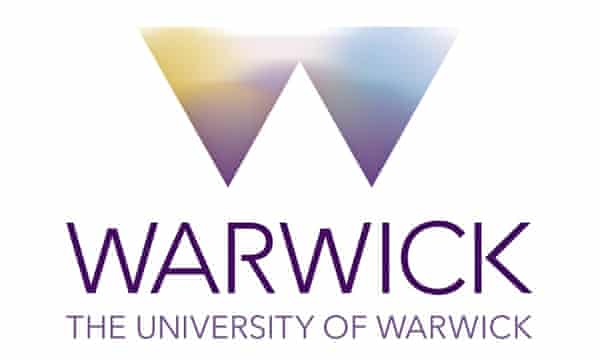University of Warwick: Search for planetary remains and new mathematical concepts at University of Warwick receive over €4 million European research funding
Supports research into fusing ‘discrete’ and ‘continuous’ mathematics, and investigating the remains of planets around white dwarf stars
209 top researchers awarded over €500m in ERC Advanced Grants
Scientists at the University of Warwick are to benefit from a total of over €4 million funding to support new projects that will aim to find and analyse the remains of planets around nearby dead stars, and to find new ways of incorporating the ideas of combinatorics into different areas of mathematics.
The European Research Council has today announced the winners of its 2020 Advanced Grants competition. The funding, worth in total €507 million, will go to 209 leading researchers across Europe.
Their work is set to provide new insights into many subjects, such as the links between obesity and pancreatic cancer, threats from wildlife viruses, brain-inspired neural network computer chips, and new ways for architects to design the buildings of the future.
Two projects at the University of Warwick have received funding in this latest round, totalling over €4 million.
Professor Boris Gaensicke of the Department of Physics has received €2.5million for the WDPlanets project, which aims greatly improve our understanding of the formation, structure, and evolution of planets.
The common fate of practically all stars hosting planets is that they will eventually evolve into white dwarfs. This project will make use of astrometric, spectroscopic and photometric observations to carry out an ambitious and comprehensive research program of white dwarfs hosting remnants of planetary systems, to find out more about the material accreting in these stars and to potentially identify new planets in close orbits around them.
This is the second ERC Advanced Grant that Professor Gaensicke has received. He said: “I’m delighted that the ERC is supporting this project, and their funding will enable my team to make full scientific use of the data that a new generation of experiments are beginning to produce right now, so this is ideal timing.
“Firm evidence for evolved planetary systems at white dwarfs is found in the form of photospheric contamination from the accretion of planetary material, transits caused by clouds of debris, spectroscopic variability from planetesimals on ultra-short period orbits, and one volatile-rich gaseous disc formed from the evaporated atmosphere of a giant planet. These evolved planetary systems provide insight into the formation, structure, evolution, and ultimate fate of planets that are entirely complementary to, and in large parts unattainable by, the analyses of exo-planets orbiting main-sequence stars.”
Alongside Professor Gaensicke, Professor Oleg Pikhurko from the Department of Maths has also received a grant of €1.58m for his ERC project, entitled ‘Finite and Descriptive Combinatorics’, which will endeavour to expand the existing connections and build new bridges between various areas of mathematics, focusing on combinatorial-type structures (such as networks, binary codes, etc).
It is hoped that combinatorial ideas and methods will be successfully adapted to find constructive solutions to some foundational mathematical problems. One such proposed problem, which is easy to state, is the unresolved question of Mycielski from the 1950s whether the surface of a 3-dimensional ball can be partitioned into three congruent pieces without using the Axiom of Choice.
In the other direction, the project will in particular seek to apply the emerging theory of limits of discrete structures (where a finite but large combinatorial object is replaced by an analytic approximation of bounded complexity) to attack some key problems of finite combinatorics that withstood all previous attempts by traditional methods.
Professor Oleg Pikhurko, from the Department of Maths at the University of Warwick comments: “This funding from the ERC gives me a unique opportunity to pursue in great depth some recently emerged fields that connect seemingly remote parts of mathematics. Hopefully, this project, besides proving new mathematical results, will also encourage a more active exchange of ideas and expertise between the corresponding research communities.”
Professor Pam Thomas, Pro-Vice-Chancellor (Research) at the University of Warwick, said: “I am delighted that the European Research Council is supporting cutting-edge research here at the University of Warwick. The two projects that this funding supports demonstrate the breadth of challenges that our scientists aim to tackle, from foundational mathematical problems to learning more about how planets form and their ultimate fates. I look forward to seeing these projects progress.”
ERC President Professor Jean-Pierre Bourguignon commented: “For this last ERC call under Horizon 2020, over 200 researchers will be funded to follow their scientific instinct and dreams. Still, the great increase in demand led to a very fierce competition: only 8% of candidates were successful. Many outstanding researchers with innovative ideas passed the excellence threshold, but were left unfunded due to budget constraints -another motivation for the national or regional levels to support these great projects.”
Apart from strengthening Europe’s knowledge base, the new research projects will also lead to the creation of some 1,900 new jobs for post-doctoral fellows, PhD students and other research staff. The future grantees will carry out their projects at universities and research centres across 14 EU Member States and associated countries with the UK (51 grants), Germany (40), France (22) and Netherlands (17) hosting the highest number of grants.

